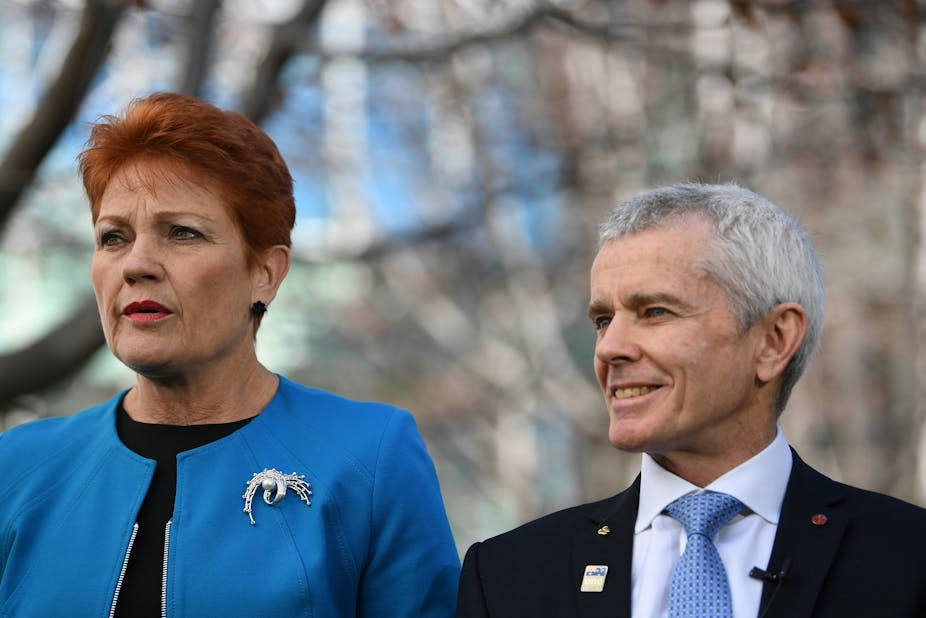Pauline Hanson is set to move that the High Court consider the eligibility of One Nation senator Malcolm Roberts. There is a question mark over whether Roberts was a dual British citizen when he nominated for parliament.
Hanson’s announcement came after it was obvious a Greens move for a referral would be successful. This followed BuzzFeed News on Tuesday posting online Roberts’ signed application for Australian citizenship, in which he declared he was a British citizen at age 19 in 1974.
Whether Roberts was a dual national has been a long-running issue, with Roberts changing his story, from saying he was never a British citizen to most recently claiming he had renounced his British citizenship but refusing to make public the documentation. Under Section 44 of the Constitution a dual citizen is ineligible to stand for federal parliament.
Hanson and Roberts appeared at an often heated joint news conference, at which she declared he had been “eligible to stand at the time of nomination”.
In a statement, Hanson said that One Nation would be supporting Roberts “in his plan to refer himself to the High Court”. Later the statement was revised to say Hanson would move the referral.
She said it had always been Roberts’ “intention to submit his citizenship documents for public scrutiny”.
“In light of the major parties’ decision not to hold a full inquiry into the citizenships of senators, it was deemed that the High Court would provide senator Roberts the best opportunity to prove he has complied with the Australian Constitution and is lawfully elected,” she said.
“Senator Roberts has my full backing and total support from his fellow One Nation senators.”
Hanson told reporters Roberts’ case was “not straightforward” but “very complex”. “You don’t understand the full situation.”
Asked about what he had said on his application form, Roberts said: “I was a citizen of the UK and colonies … We all know that back then we were very strong members of the Commonwealth, we still are, we sang God Save The Queen until not long before then, I always thought that I was Australian, always thought I was Australian.”
The referral will have general agreement in the Senate. Earlier the government had resisted action against Roberts, with its Senate leader, George Brandis, saying on Tuesday that: “A person lodges an apparently regular nomination for an election, and they are declared to have been elected, then the onus of proof … lies on those who seek to prove that they weren’t validly elected to demonstrate that that is the case”.
The referral of Roberts is the latest in a dramatic series of events that has thrown the Senate’s membership into turmoil and given the High Court an extraordinary number of cases to deal with.
Apart from Roberts’ future, these include ruling on the filling of the places of two Greens senators, Larissa Waters and Scott Ludlam, who resigned because they discovered they were dual nationals, and considering the eligibility of the Nationals’ Matt Canavan, whose mother signed him up as an Italian citizen.
The Senate is also awaiting the arrival of the replacement for former Western Australian Liberal senator Chris Back, who recently retired. As well, Special Minister of State Scott Ryan is on extended medical leave.
But arrangements between the parties are in place to ensure the various court cases and gaps do not affect the voting numbers.

